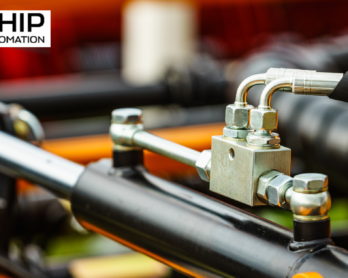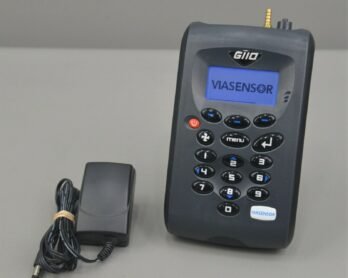In the ongoing battle against climate change, every tool at our disposal matters. Enter the portable CO2 analyzer, a cutting-edge device that is increasingly becoming a crucial instrument in the efforts to mitigate climate change. As the world grapples with the consequences of rising carbon dioxide levels, these analyzers are stepping into the spotlight, aiding environmental stewardship. In this article, we explore how portable CO2 analyzers are making a significant impact on the journey towards a more sustainable future.
Subheading 1: The Urgency of Climate Change Mitigation
- Global Warming: Climate change is a complex issue, and one of its most pressing manifestations is global warming. Rising CO2 levels in the atmosphere are a primary driver of this phenomenon.
- Environmental Consequences: The consequences of global warming are far-reaching, including more frequent and severe weather events, sea-level rise, and threats to ecosystems and biodiversity.
- Human Impact: Climate change has direct and indirect effects on human populations, from health risks to economic challenges. Mitigation is essential for safeguarding the planet and its inhabitants.
Subheading 2: Portable CO2 Analyzers: The Environmental Detectives
- Real-time CO2 Monitoring: Portable CO2 analyzers are designed to monitor carbon dioxide levels in real time. These analyzers offer quick and accurate data on CO2 concentrations in various environments.
- Compact and Mobile: Portability is a key feature, allowing users to carry these analyzers to diverse locations for on-the-spot measurements. This mobility is invaluable in field research and monitoring.
- Continuous Data Logging: Many portable analyzers log data continuously, providing a wealth of information that can be analyzed to track CO2 levels over time.
Subheading 3: Environmental Applications
- Outdoor Air Quality Monitoring: Portable CO2 analyzers are used to monitor outdoor air quality in urban and rural areas. This data helps assess the impact of CO2 emissions on air quality.
- Indoor Air Quality Assessment: Analyzers play a crucial role in assessing indoor air quality, particularly in buildings, schools, and workplaces. Monitoring CO2 levels indoors is vital for health and well-being.
- Environmental Research: Researchers utilize these analyzers to gather data for environmental studies, including climate change research, forest ecology, and carbon cycling in ecosystems.
Subheading 4: Contributing to Climate Science
- Climate Models: The data collected by portable CO2 analyzers is integrated into climate models, helping scientists refine their understanding of CO2 dynamics and its role in climate change.
- Mitigation Strategies: The analyzers provide critical information for the development and assessment of mitigation strategies, including emission reduction plans.
- Policy Support: Policymakers rely on the scientific data generated by these analyzers to make informed decisions regarding climate change policies and regulations.
Subheading 5: Carbon Footprint Reduction
- Industry and Business: Portable CO2 analyzers are used by industries and businesses to measure their carbon footprint. This data aids in the development of eco-friendly practices and sustainability initiatives.
- Emission Reduction: Armed with accurate data from analyzers, companies can implement measures to reduce emissions, such as improving energy efficiency or transitioning to renewable energy sources.
- Consumer Awareness: The public is increasingly conscious of a company’s carbon footprint. Businesses that use CO2 analyzers to reduce emissions can positively influence consumer perception.
Subheading 6: Sustainable Agriculture
- Crop Health: Portable CO2 analyzers are used in agriculture to assess crop health. They provide insights into photosynthesis rates and help optimize growing conditions.
- Greenhouses: Analyzers help maintain optimal CO2 levels in greenhouses, enhancing plant growth and productivity while reducing the need for additional heating.
- Agricultural Sustainability: Using data from these analyzers, farmers can adopt sustainable practices that reduce emissions and environmental impact.
Subheading 7: Environmental Education and Awareness
- Educational Tools: Portable CO2 analyzers are valuable educational tools for schools, universities, and environmental organizations. They help students and the public understand the role of CO2 in climate change.
- Community Engagement: Analyzers enable local communities to actively participate in environmental monitoring and climate action, fostering a sense of environmental responsibility.
- Advocacy: Armed with data from these analyzers, individuals and organizations can advocate for policies and practices that address climate change.
Subheading 8: The Role of Citizen Science
- Community Science Initiatives: Citizen scientists and volunteers are increasingly using portable CO2 analyzers in community science projects. This data supplements professional research and adds a grassroots dimension to environmental monitoring.
- Local Impact: Community-based data collection helps address local environmental challenges and raises awareness about specific issues affecting communities.
- Enhancing Research: The data contributed by citizen scientists can enhance research and add diverse perspectives to environmental studies.
Subheading 9: Climate Action at Every Level
- Global Cooperation: Mitigating climate change is a global effort, and the data collected by portable CO2 analyzers contributes to our understanding of this complex issue.
- Local Initiatives: At the local level, cities and communities are using analyzers to reduce emissions, improve air quality, and adapt to the changing climate.
- Individual Commitment: Individuals are increasingly recognizing their role in climate change mitigation and using these analyzers to monitor their personal carbon footprint.














